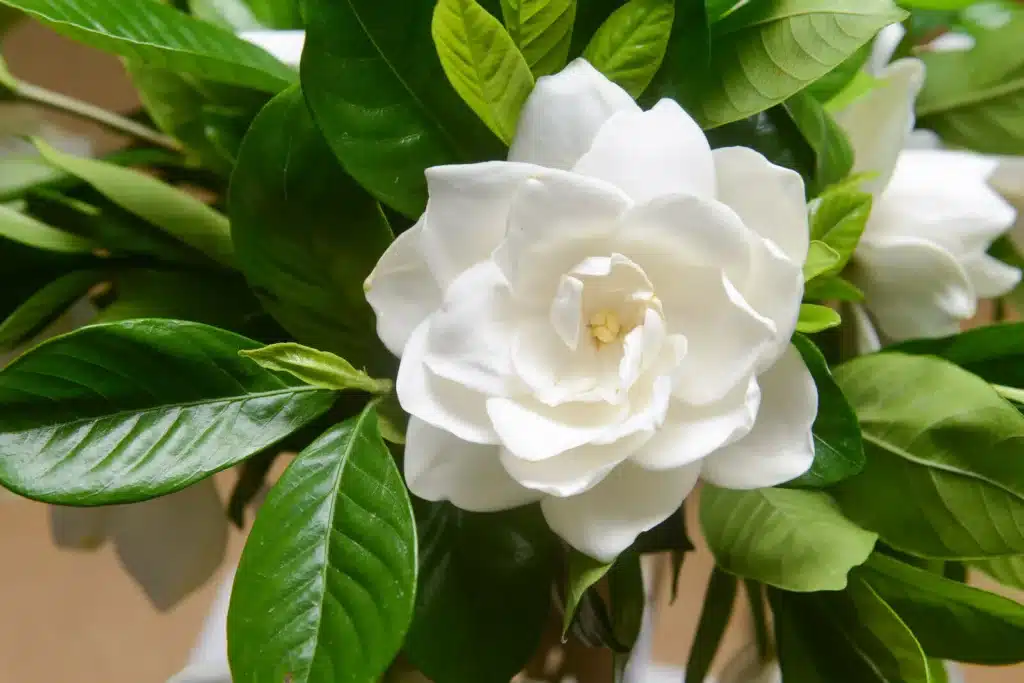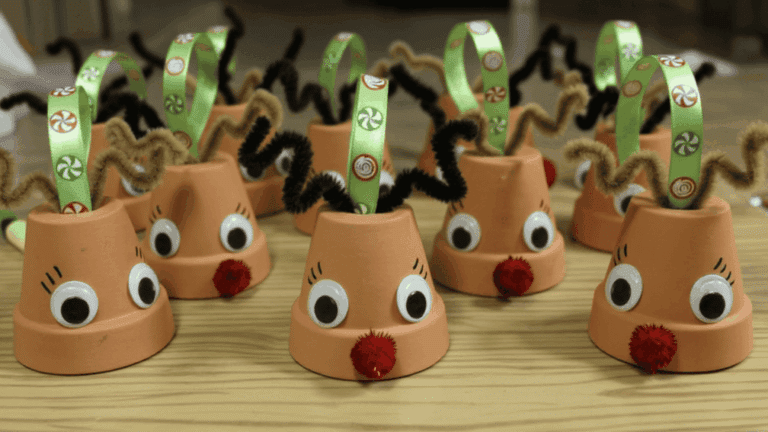Gardens are a joy to behold, and flowers starting with ‘G’ add a special charm. You might think finding stunning blooms at the beginning of this letter is tough. I’m here to show you it’s easier than you think!
In this post, I’ll take you on a global tour of 25 eye-catching flowers that start with ‘G.’
From common garden favorites to rare exotic species, you’ll find a mix that’ll spark your interest. I’ll share fun facts, growing tips, and uses for each flower.
By the end, you’ll have a new list of ‘G’ flowers to add to your garden or enjoy spotting in nature.
List of Flowers That Start with G
1. Geranium
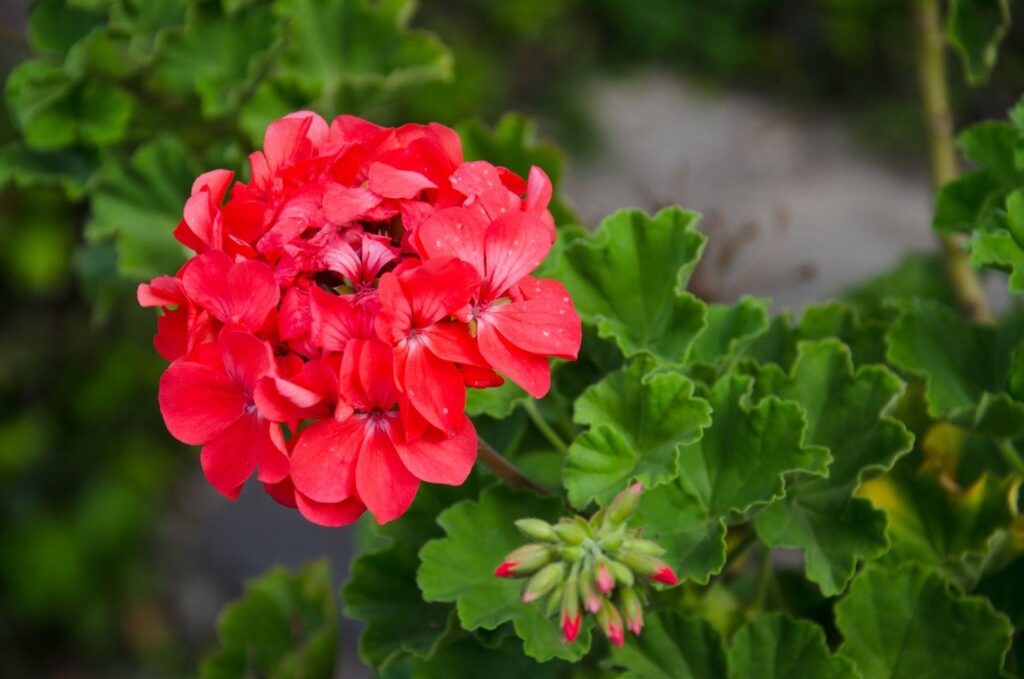
Geraniums are popular garden plants known for their bright, colorful blooms, which range from red to pink to white.
These flowers are highly valued globally for their beauty and ease of growth in various climates, making them a garden staple.
| Scientific Name | Pelargonium spp. |
|---|---|
| Family | Geraniaceae |
| Number of Species | 200+ |
| Native Regions | South Africa |
| Blooming Period | Spring to Fall |
| Symbolism | Friendship, Good Health |
Uses and Benefits
- Used in aromatherapy and essential oils.
- Often planted to repel pests in gardens.
- Ornamental use in landscaping.
2. Gladiolus
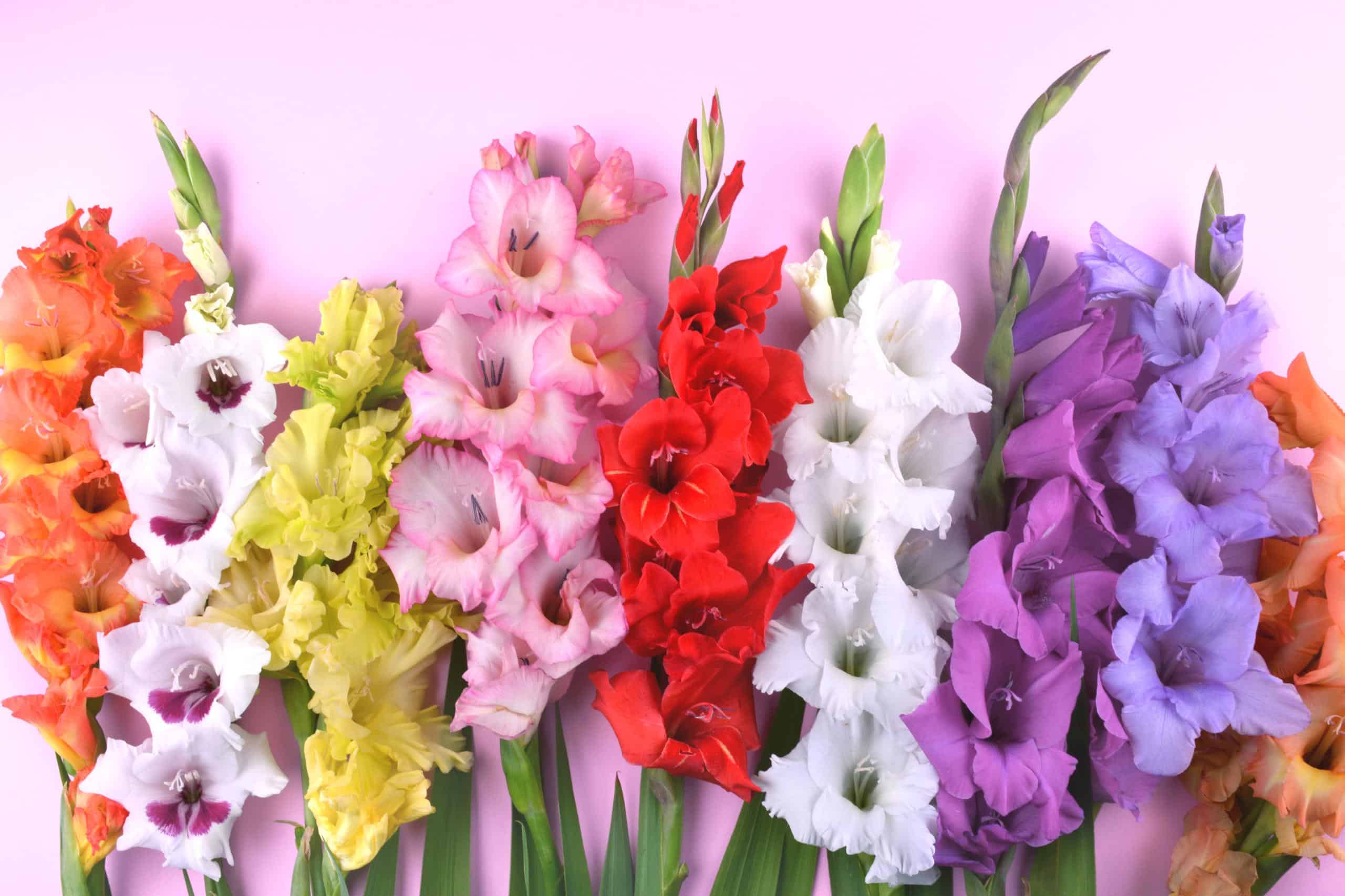
Gladiolus is a striking flower with tall spikes of blooms in various colors, including pink, red, purple, and yellow.
It is widely grown for its dramatic appearance and is often used in floral arrangements and as cut flowers.
| Scientific Name | Gladiolus spp. |
|---|---|
| Family | Iridaceae |
| Number of Species | 260+ |
| Native Regions | Africa, Mediterranean |
| Blooming Period | Summer to Early Fall |
| Symbolism | Strength, Integrity |
Uses and Benefits
- Popular in cut flower arrangements.
- It is used in traditional medicine in some cultures.
- Ornamental use in garden beds and borders.
3. Gardenia
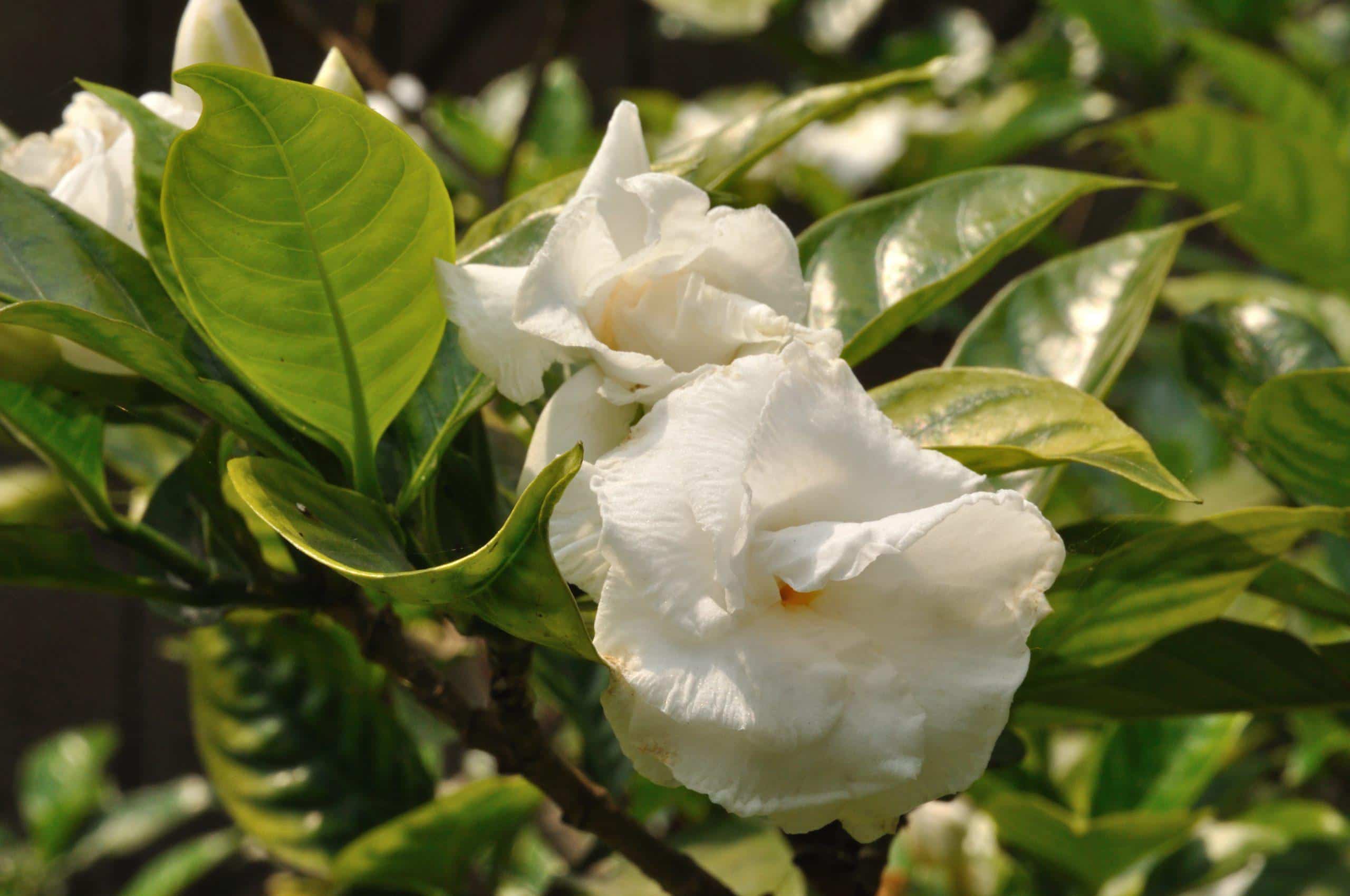
Gardenias are known for their creamy white, fragrant flowers and glossy green leaves.
They are significant in many cultures for their symbolism of purity and sweetness and are commonly used in perfumes.
| Scientific Name | Gardenia jasminoides |
|---|---|
| Family | Rubiaceae |
| Number of Species | 140+ |
| Native Regions | Asia, Africa |
| Blooming Period | Late Spring to Early Summer |
| Symbolism | Purity, Love, Secret Love |
Uses and Benefits
- Used in perfumery due to its strong fragrance.
- Common in ornamental horticulture.
- Often used in wedding bouquets and decorations.
4. Gazania
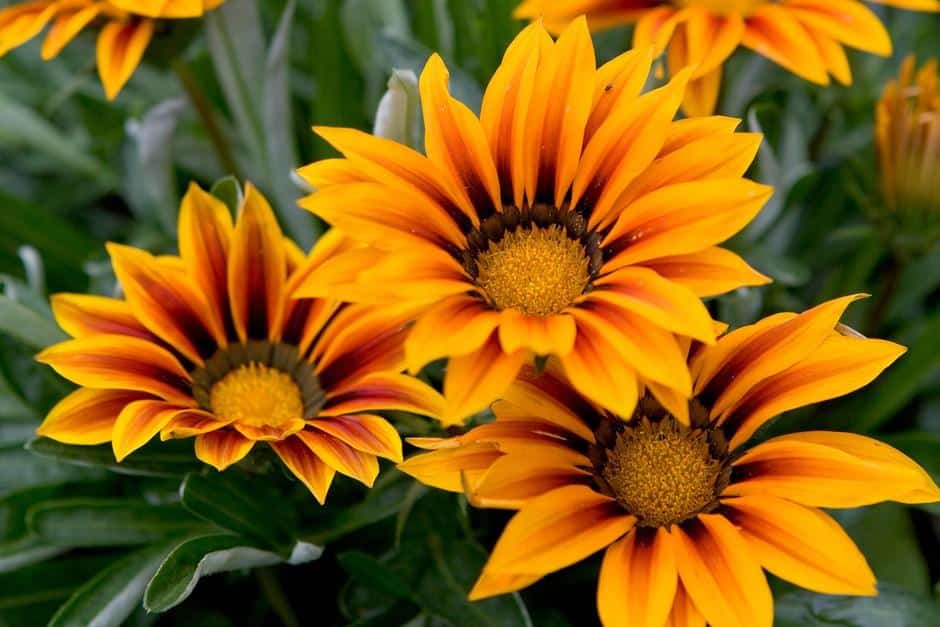
Gazania, also known as treasure flower, features daisy-like blooms in vibrant colors such as orange, yellow, and red.
It thrives in hot, dry conditions and is often used in xeriscaping.
| Scientific Name | Gazania rigens |
|---|---|
| Family | Asteraceae |
| Number of Species | 16+ |
| Native Regions | South Africa |
| Blooming Period | Spring to Fall |
| Symbolism | Wealth, Prosperity |
Uses and Benefits
- Ideal for drought-tolerant gardens.
- Attracts pollinators like bees and butterflies.
- Ornamental use in rock gardens and borders.
5. Gilia
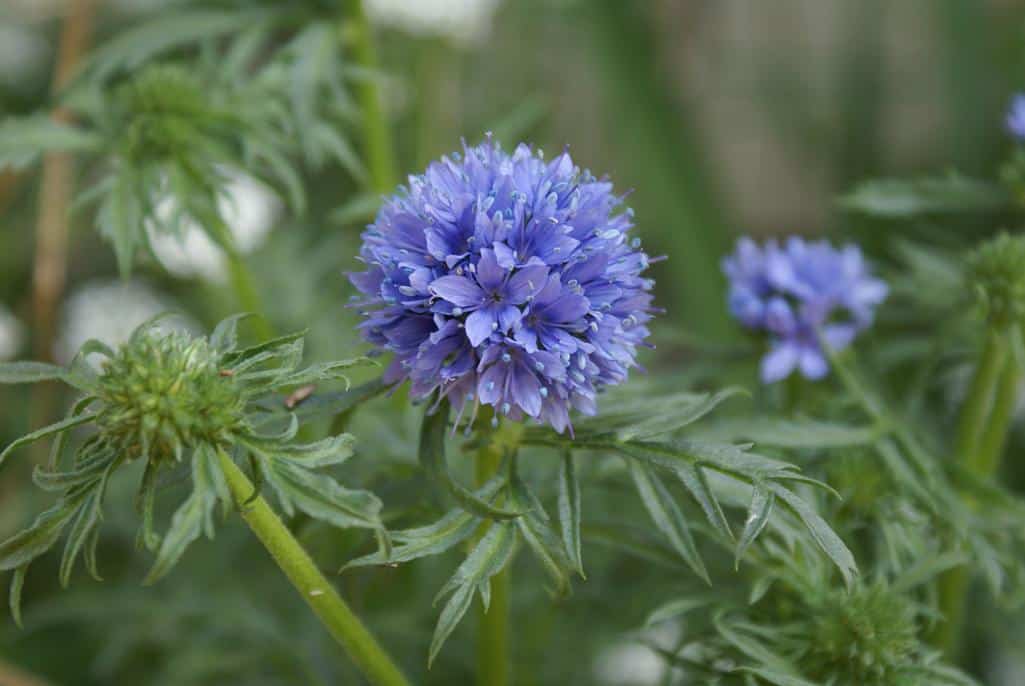
Gilia is a delicate wildflower with tiny, star-shaped blooms in shades of blue, purple, and white.
It is important for maintaining biodiversity in wildflower meadows and is often found in dry, open habitats.
| Scientific Name | Gilia spp. |
|---|---|
| Family | Polemoniaceae |
| Number of Species | 50+ |
| Native Regions | North America |
| Blooming Period | Spring to Summer |
| Symbolism | Tranquility, Peace |
Uses and Benefits
- Used in wildflower seed mixes for naturalized areas.
- Attracts native pollinators.
- Enhances biodiversity in natural habitats.
6. Goldenrod
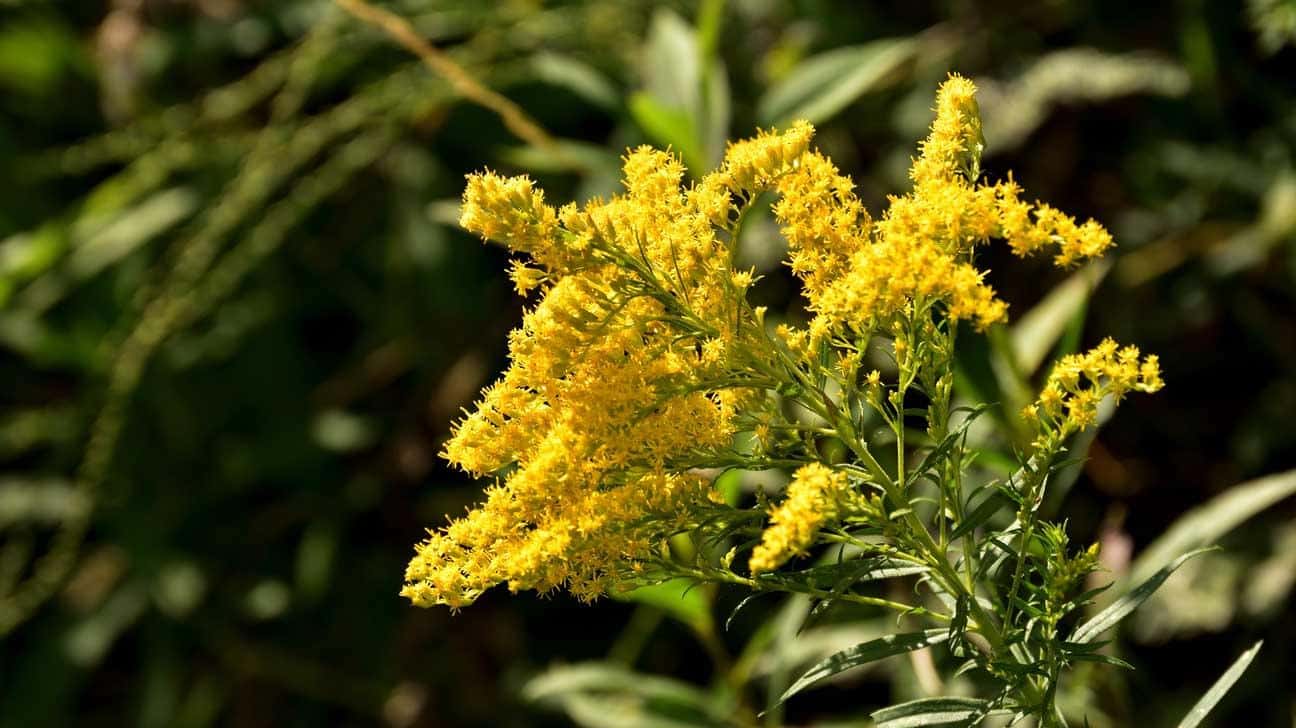
Goldenrod is a tall plant with clusters of small, bright yellow flowers.
It is often associated with late summer and is important in North American ecosystems for supporting pollinators.
| Scientific Name | Solidago spp. |
|---|---|
| Family | Asteraceae |
| Number of Species | 100+ |
| Native Regions | North America |
| Blooming Period | Late Summer to Fall |
| Symbolism | Encouragement, Growth |
Uses and Benefits
- Used in herbal medicine, particularly for urinary issues.
- Supports bees and other pollinators.
- Ornamental use in late summer gardens.
7. Gaillardia (Blanket Flower)
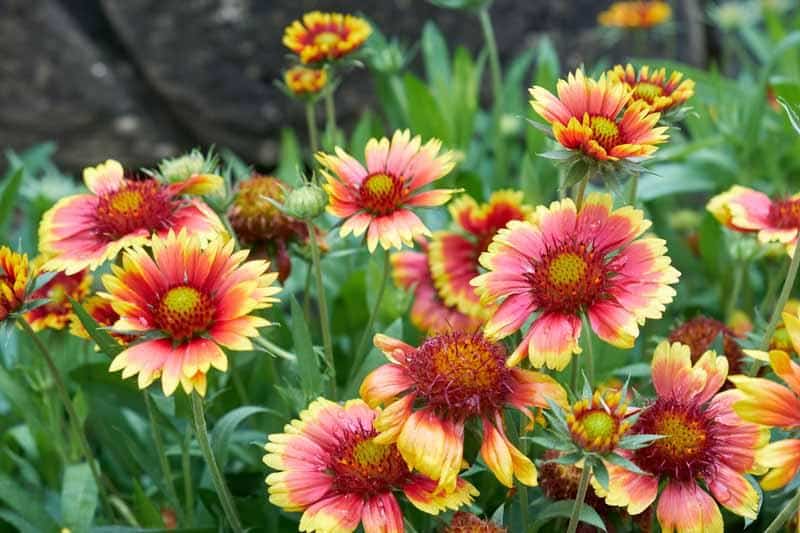
Gaillardia is a vibrant, long-blooming flower with bright red and yellow petals.
It is widely appreciated for its cheerful appearance and ability to thrive in poor soils.
| Scientific Name | Gaillardia spp. |
|---|---|
| Family | Asteraceae |
| Number of Species | 25+ |
| Native Regions | North and South America |
| Blooming Period | Summer to Fall |
| Symbolism | Joy, Happiness |
Uses and Benefits
- Attracts butterflies and other pollinators.
- Drought-tolerant, ideal for xeriscaping.
- Adds bright color to garden borders and beds.
8. Gooseneck Loosestrife
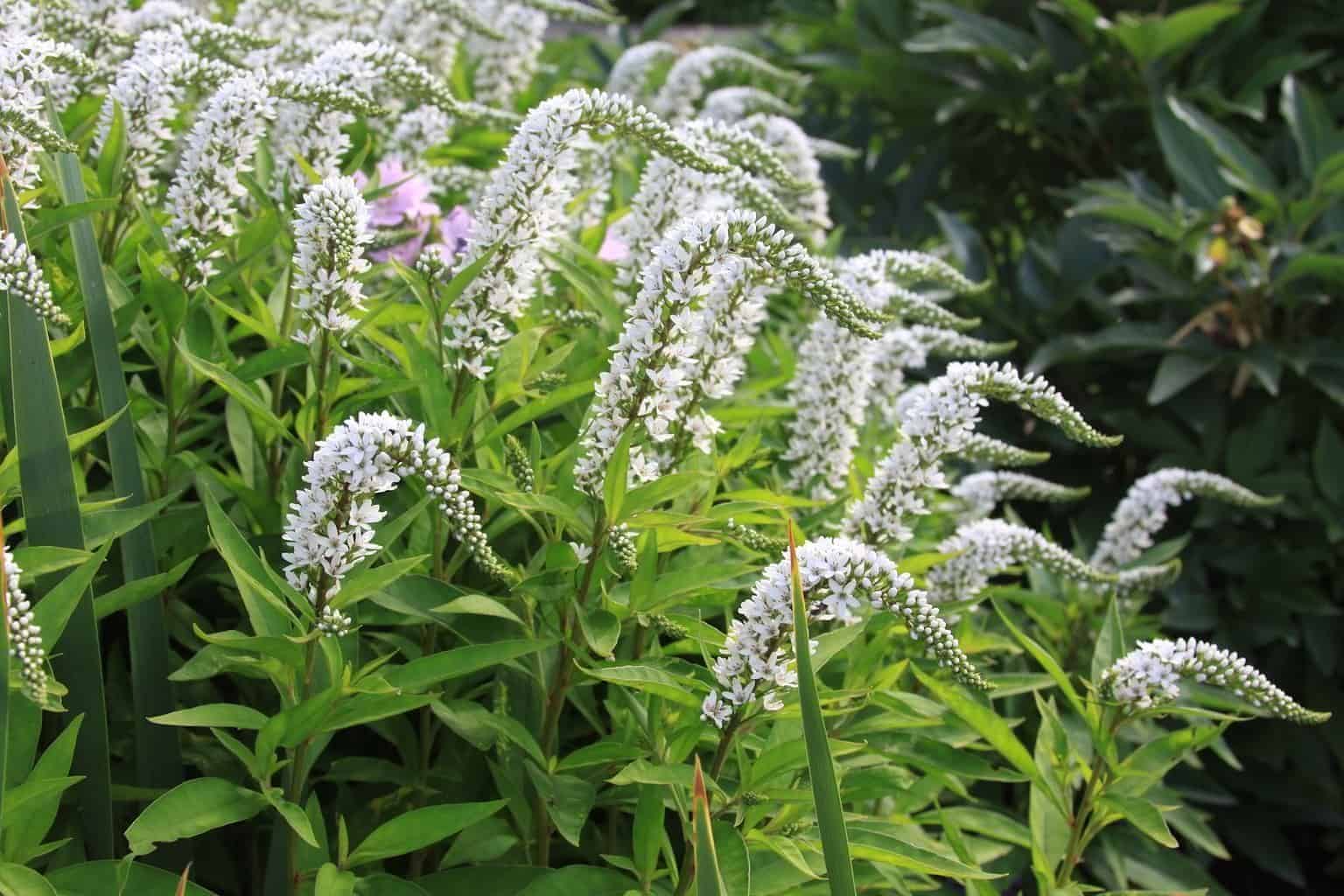
Gooseneck Loosestrife is a unique plant with arching stems of white flowers, resembling the neck of a goose.
It grows well in moist soils and is often used in naturalized garden settings.
| Scientific Name | Lysimachia clethroides |
|---|---|
| Family | Primulaceae |
| Number of Species | 200+ |
| Native Regions | Asia |
| Blooming Period | Summer |
| Symbolism | Adaptability, Flexibility |
Uses and Benefits
- Excellent for controlling erosion in wet areas.
- Attracts pollinators like bees and butterflies.
- Ornamental use in woodland and water gardens.
9. Glory-of-the-Snow
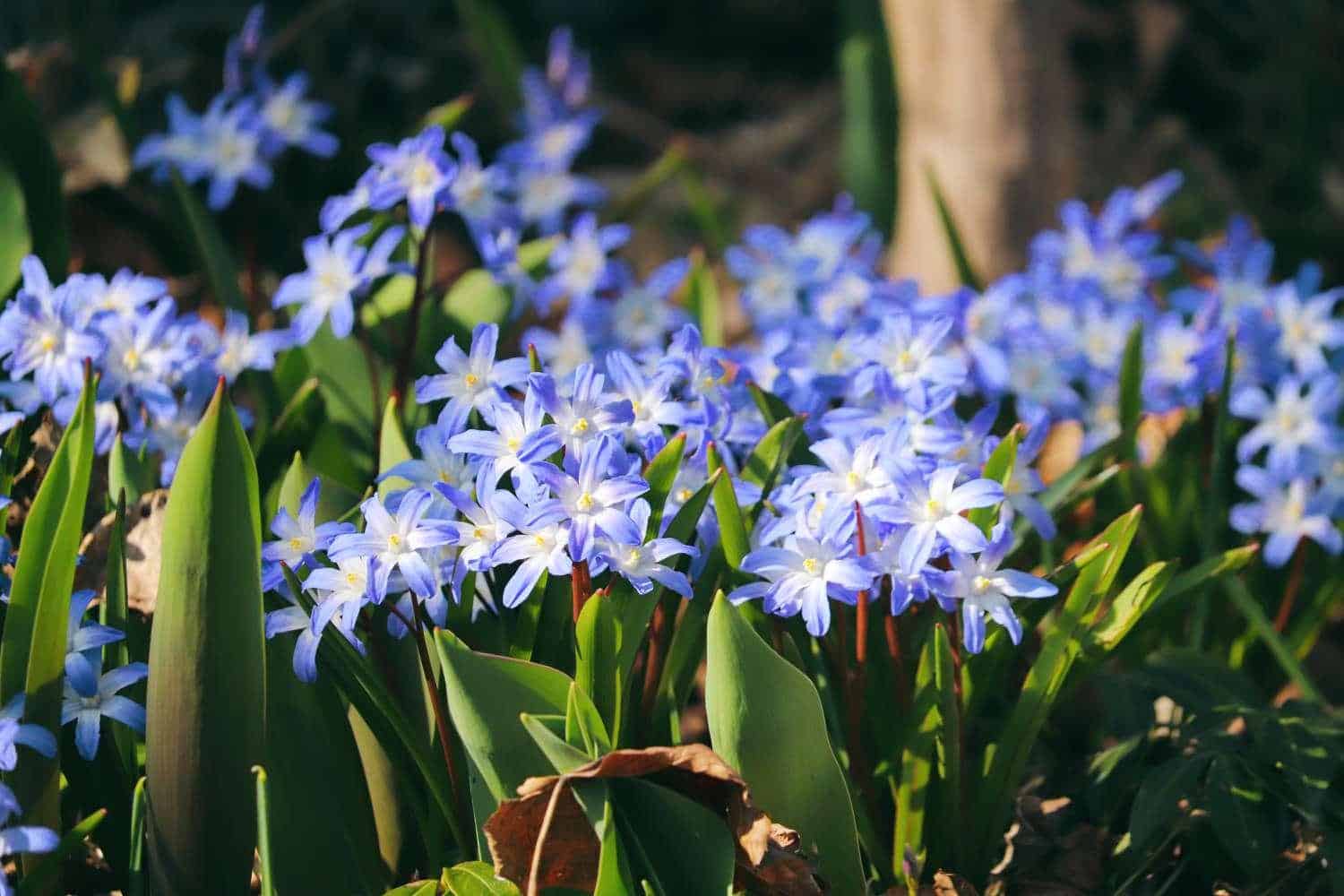
Glory-of-the-Snow is a small, early-blooming flower that bursts through the snow, with star-shaped blooms in blue, pink, or white.
It is one of the first signs of spring in temperate regions.
| Scientific Name | Chionodoxa spp. |
|---|---|
| Family | Asparagaceae |
| Number of Species | 6+ |
| Native Regions | Eastern Mediterranean |
| Blooming Period | Early Spring |
| Symbolism | Hope, New Beginnings |
Uses and Benefits
- Early nectar source for pollinators.
- Naturalizes well in lawns and under trees.
- Adds color to early spring gardens.
10. Granny’s Bonnet (Aquilegia vulgaris)
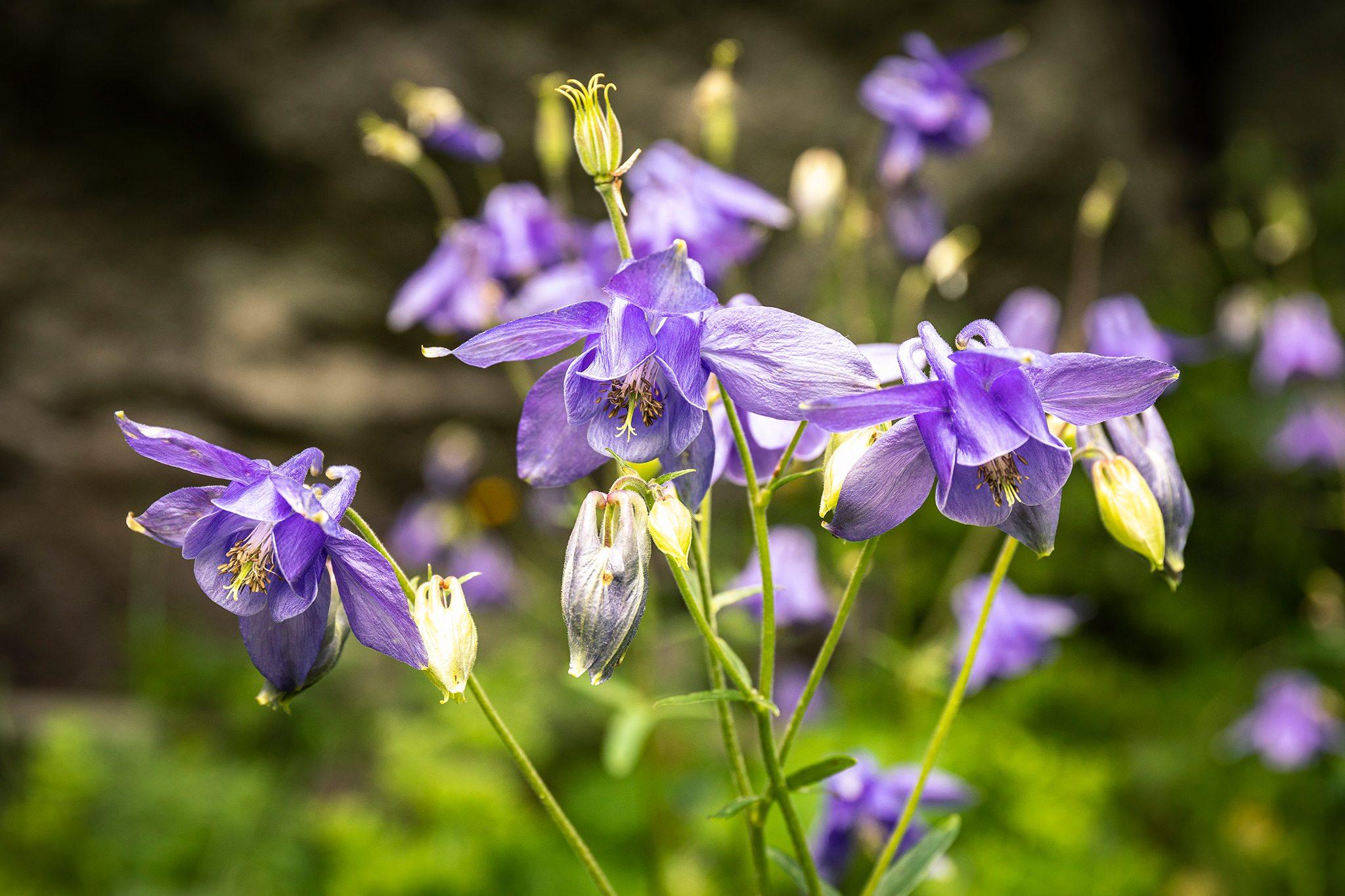
Granny’s Bonnet, also known as columbine, features bell-shaped flowers with spurs in various colors.
It is known for its delicate beauty and ability to thrive in shaded garden areas.
| Scientific Name | Aquilegia vulgaris |
|---|---|
| Family | Ranunculaceae |
| Number of Species | 70+ |
| Native Regions | Europe |
| Blooming Period | Late Spring to Summer |
| Symbolism | Faith, Wisdom |
Uses and Benefits
- Attracts hummingbirds and butterflies.
- Grows well in woodland gardens.
- Adds charm to cottage garden settings.
11. Ghost Orchid
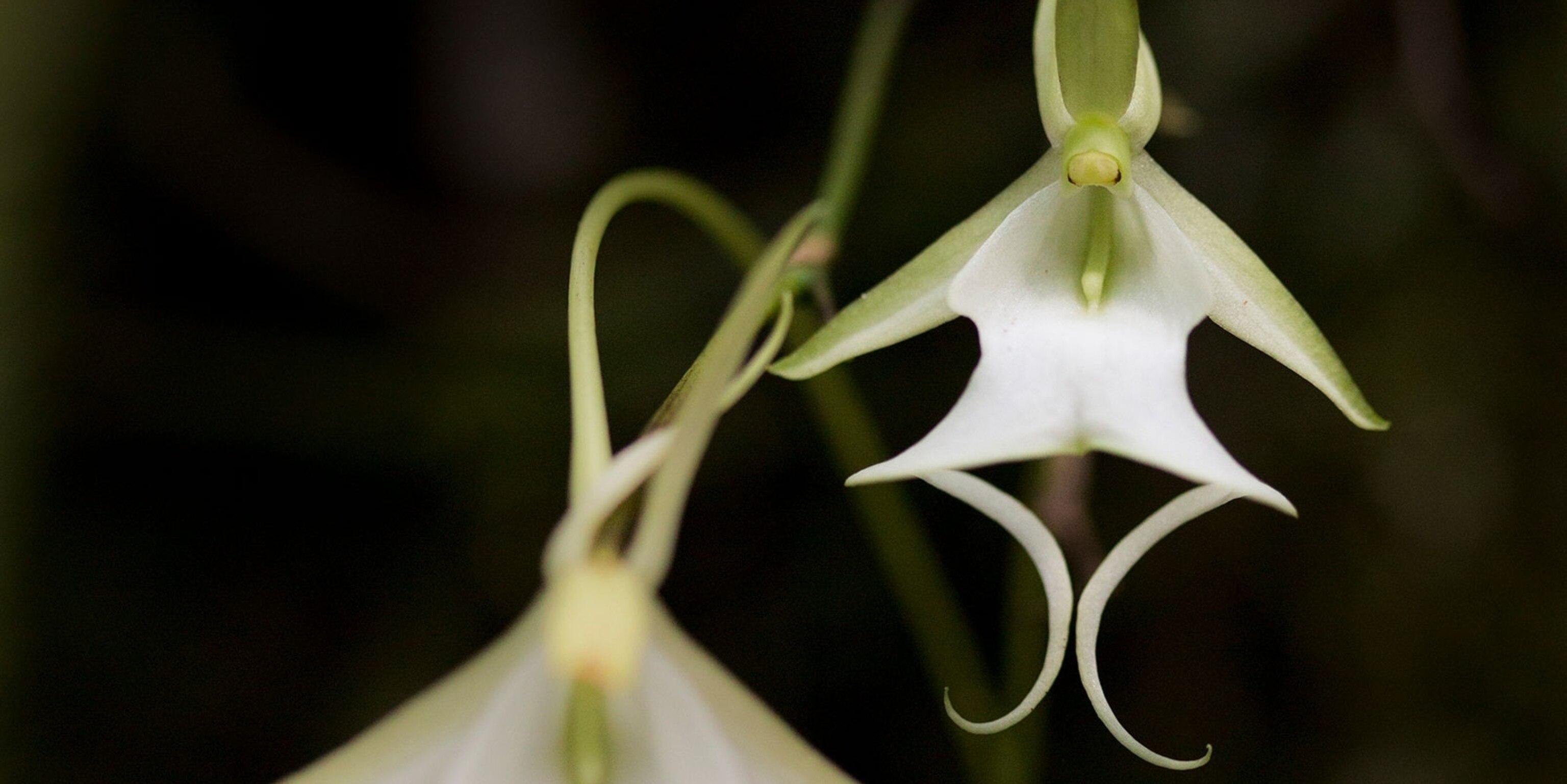
Ghost Orchid is a rare, ethereal flower with delicate, white blooms that appear to float in mid-air.
It is highly sought after by orchid enthusiasts and symbolizes mystery and rarity.
| Scientific Name | Dendrophylax lindenii |
|---|---|
| Family | Orchidaceae |
| Number of Species | 1 |
| Native Regions | Florida, Cuba |
| Blooming Period | Summer |
| Symbolism | Mystery, Rarity |
Uses and Benefits
- Highly prized by orchid collectors.
- Helps conserve endangered habitats.
- Represents beauty in nature’s most elusive forms.
12. Glory Lily
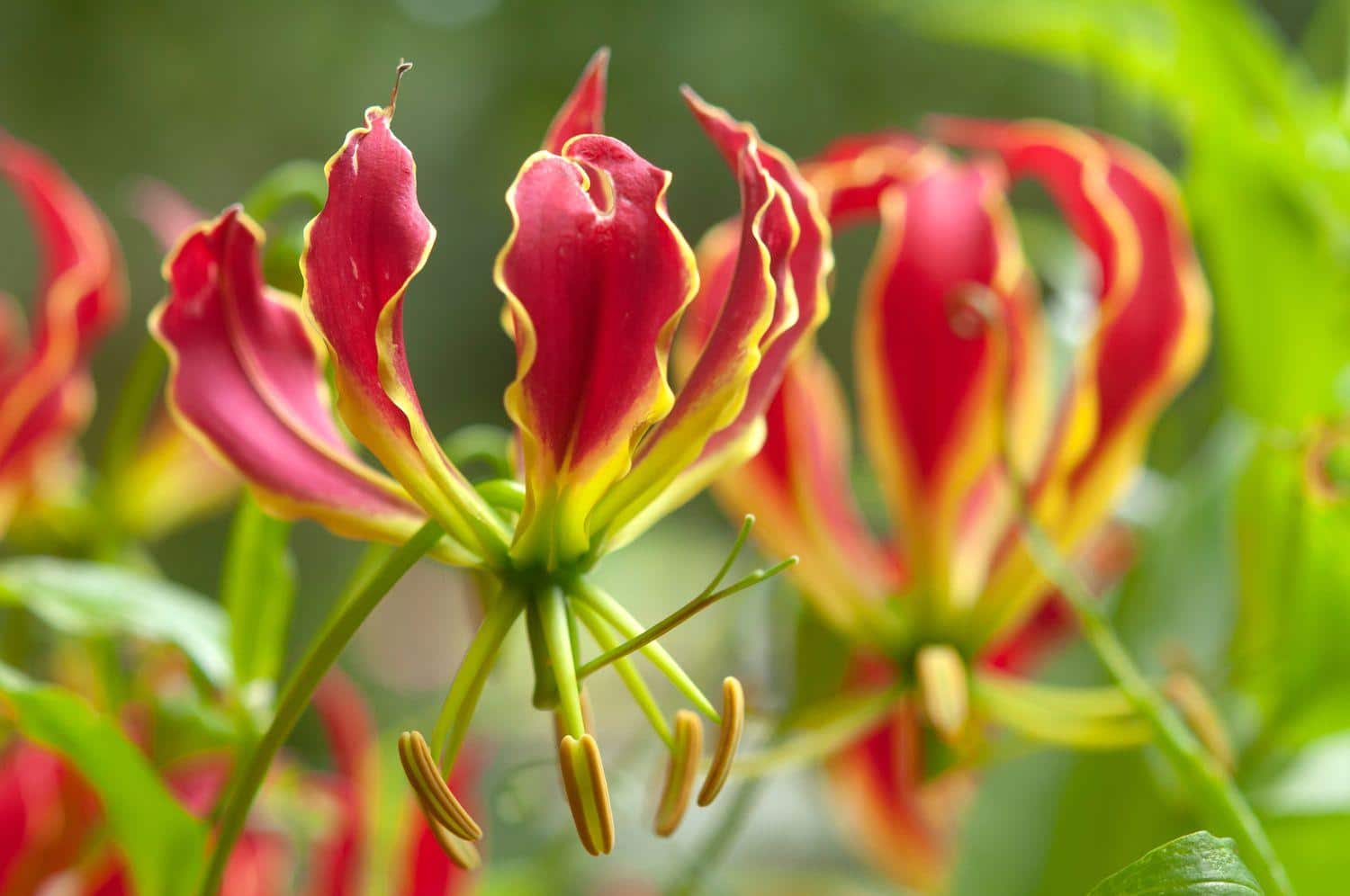
Glory Lily is a climber with flame-like red and yellow flowers, giving it an exotic appearance.
It is often used in traditional medicine in its native regions and is valued for its striking beauty.
| Scientific Name | Gloriosa superba |
|---|---|
| Family | Colchicaceae |
| Number of Species | 12+ |
| Native Regions | Africa, Asia |
| Blooming Period | Summer |
| Symbolism | Fame, Success |
Uses and Benefits
- Used in traditional medicines.
- Ornamental use in tropical gardens.
- Symbol of prosperity and success.
13. Green Jade Vine
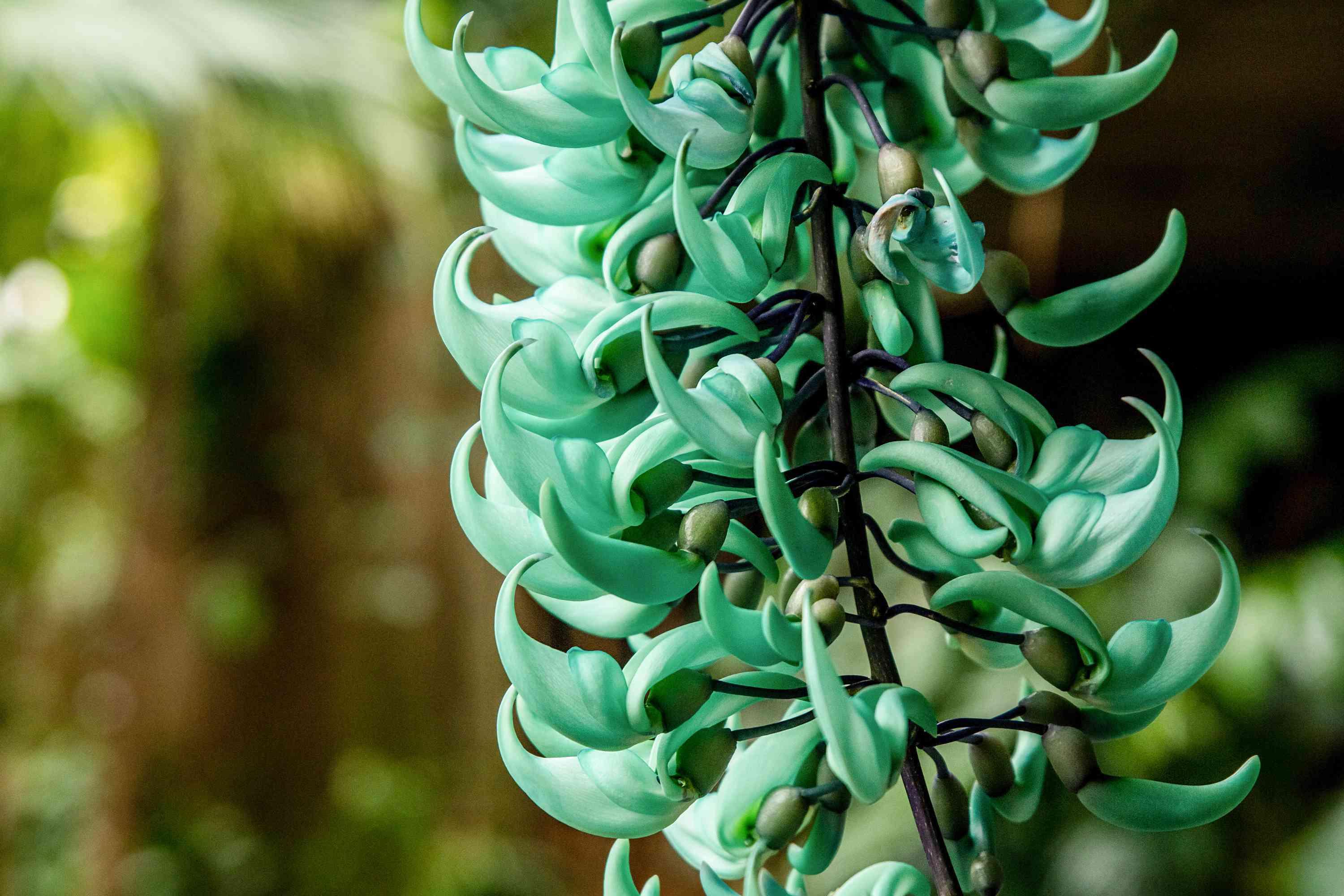
Green Jade Vine is a tropical plant with striking turquoise blooms that hang in clusters.
It is rare and primarily found in the rainforests of the Philippines, making it a symbol of uniqueness.
| Scientific Name | Strongylodon macrobotrys |
|---|---|
| Family | Fabaceae |
| Number of Species | 1 |
| Native Regions | Philippines |
| Blooming Period | Spring to Summer |
| Symbolism | Rarity, Uniqueness |
Uses and Benefits
- Ornamental plant in tropical gardens.
- Attracts specific bird species for pollination.
- Symbolizes beauty and uniqueness in nature.
14. Gloxinia
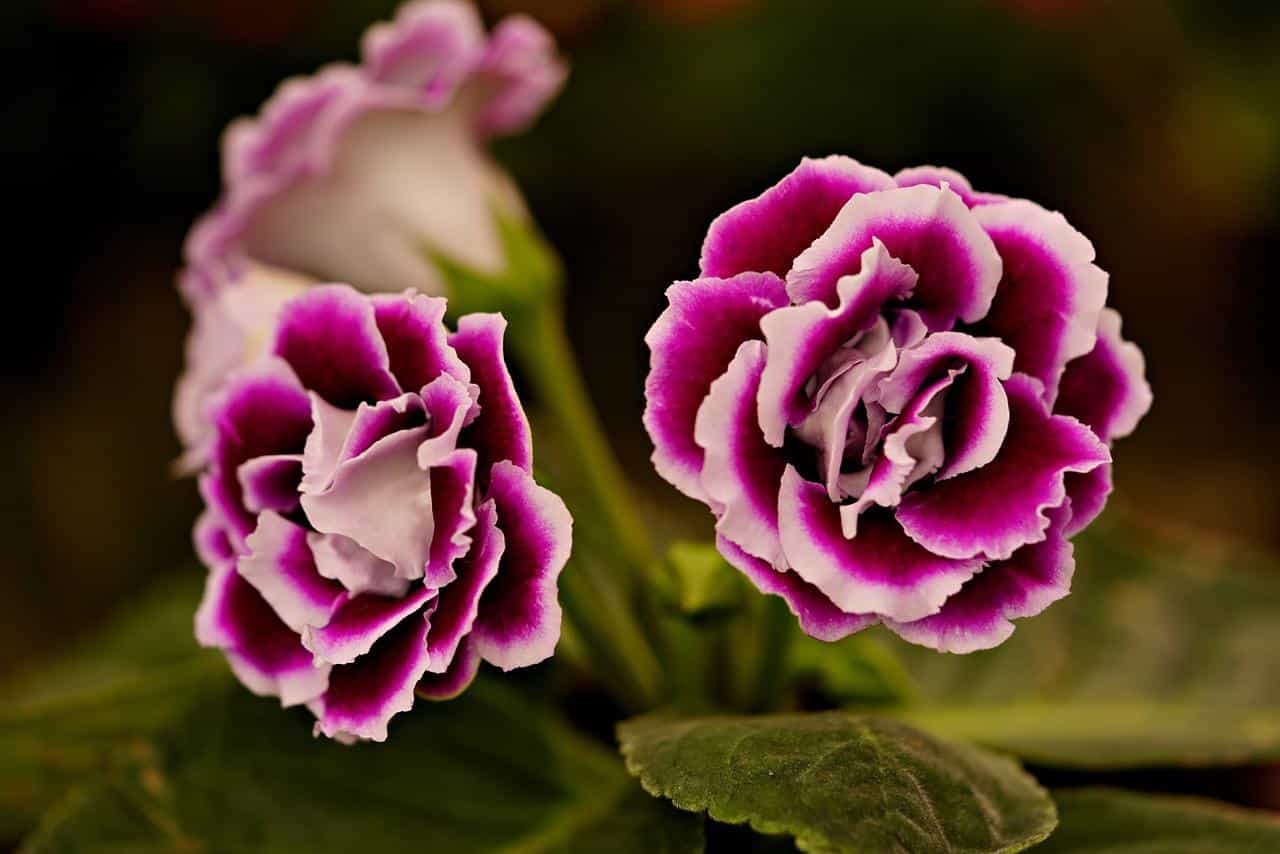
Gloxinia is known for its large, velvety, bell-shaped flowers that come in a variety of vibrant colors.
It is a popular houseplant due to its showy blooms and ease of care.
| Scientific Name | Sinningia speciosa |
|---|---|
| Family | Gesneriaceae |
| Number of Species | 70+ |
| Native Regions | Brazil |
| Blooming Period | Summer |
| Symbolism | Love at First Sight, Happiness |
Uses and Benefits
- Popular as a decorative houseplant.
- Used in hybridization for new flower varieties.
- Brings vibrant color to indoor spaces.
15. Giant Himalayan Lily
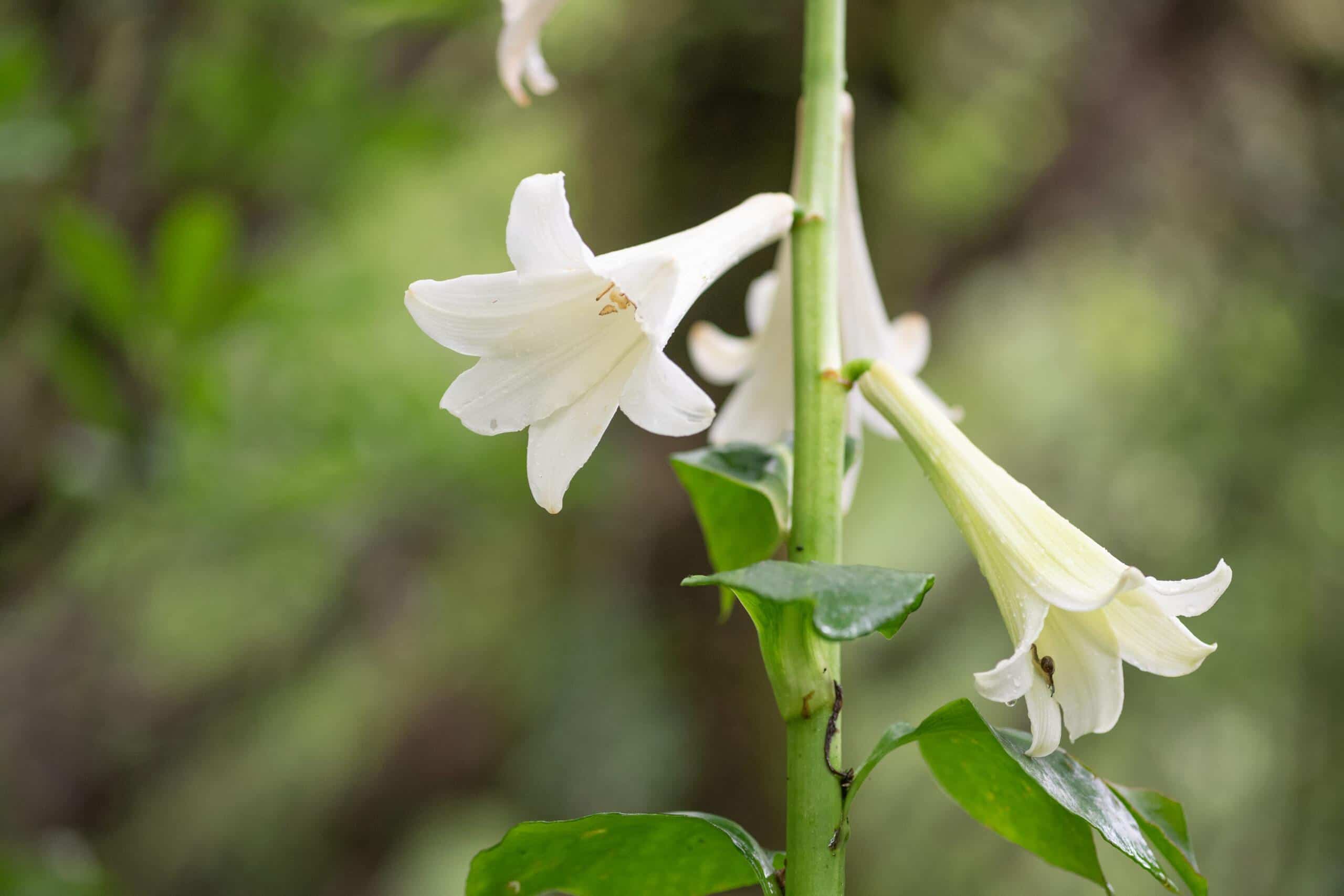
Giant Himalayan Lily is a tall plant with large, trumpet-shaped white flowers that exude a strong fragrance.
It is native to the Himalayas and is valued for its impressive size and beauty.
| Scientific Name | Cardiocrinum giganteum |
|---|---|
| Family | Liliaceae |
| Number of Species | 3+ |
| Native Regions | Himalayas |
| Blooming Period | Summer |
| Symbolism | Grandeur, Achievement |
Uses and Benefits
- Grown in gardens for its impressive height and fragrance.
- Symbolizes grand achievements and growth.
- Enhances alpine and woodland gardens.
16. Giant Water Lily (Victoria amazonica)
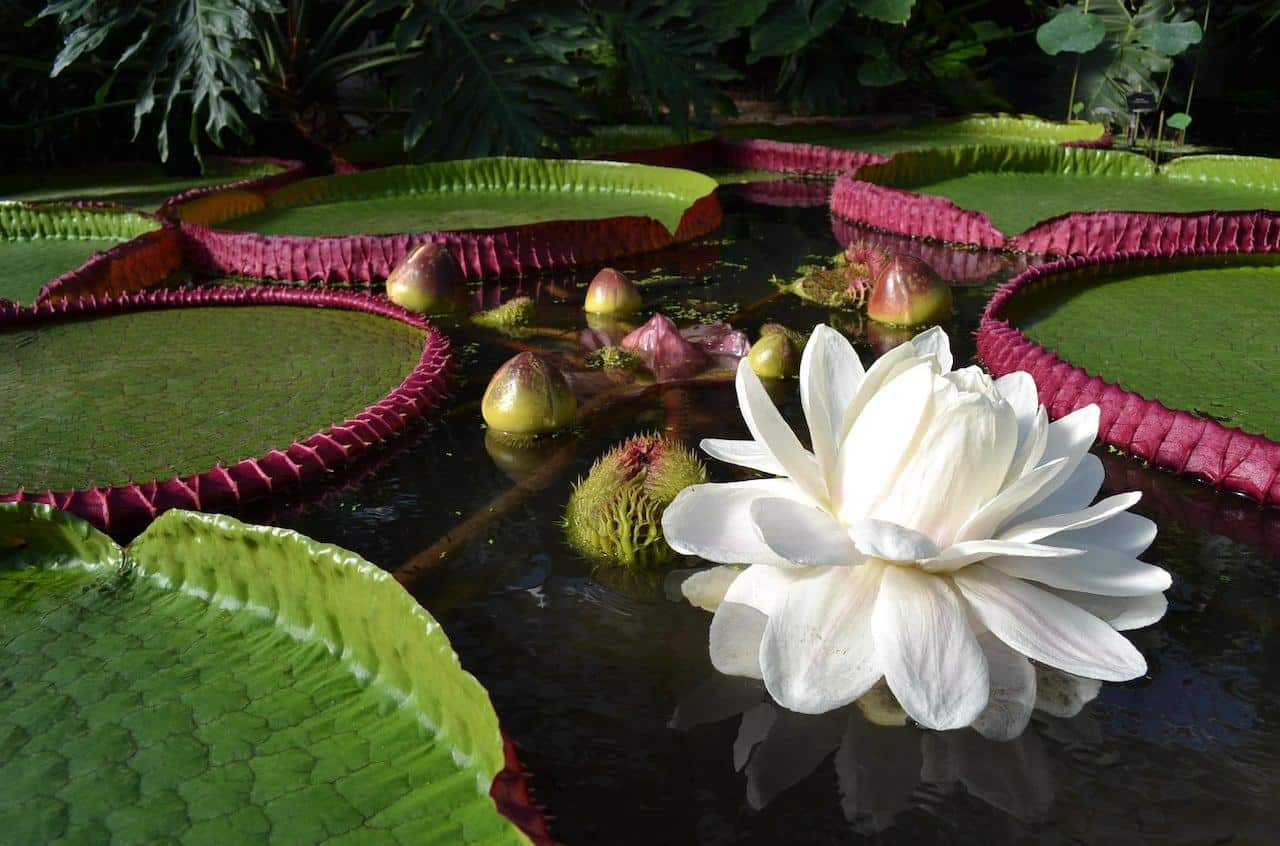
Giant Water Lily is the largest of its kind, with leaves that can span over 2 meters in diameter.
It is a wonder of the Amazon basin and symbolizes strength and endurance.
| Scientific Name | Victoria amazonica |
|---|---|
| Family | Nymphaeaceae |
| Number of Species | 1 |
| Native Regions | Amazon Basin |
| Blooming Period | Summer |
| Symbolism | Strength, Endurance |
Uses and Benefits
- Symbol of the Amazon’s rich biodiversity.
- Ornamental use in large water gardens.
- Represents the strength of nature in harsh environments.
17. Golden Lotus Banana (Musella lasiocarpa)
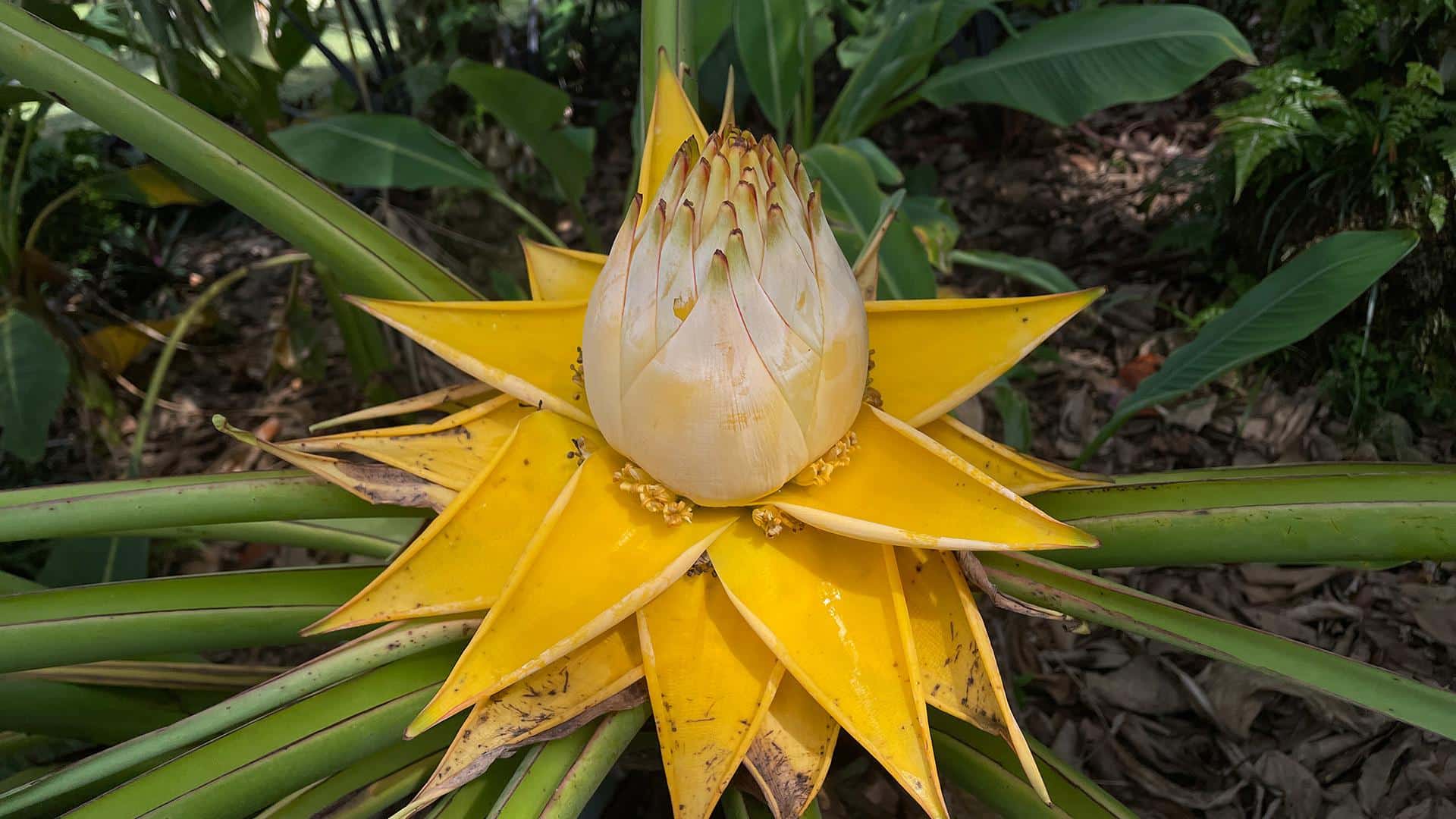
Golden Lotus Banana is known for its bright yellow, lotus-like flowers and large, tropical leaves.
It is native to China and symbolizes longevity and prosperity.
| Scientific Name | Musella lasiocarpa |
|---|---|
| Family | Musaceae |
| Number of Species | 1 |
| Native Regions | China |
| Blooming Period | Summer |
| Symbolism | Longevity, Prosperity |
Uses and Benefits
- Grown as an ornamental plant in tropical regions.
- Used in traditional Chinese medicine.
- Symbolizes wealth and longevity in many cultures.
18. Goat’s Beard (Aruncus dioicus)
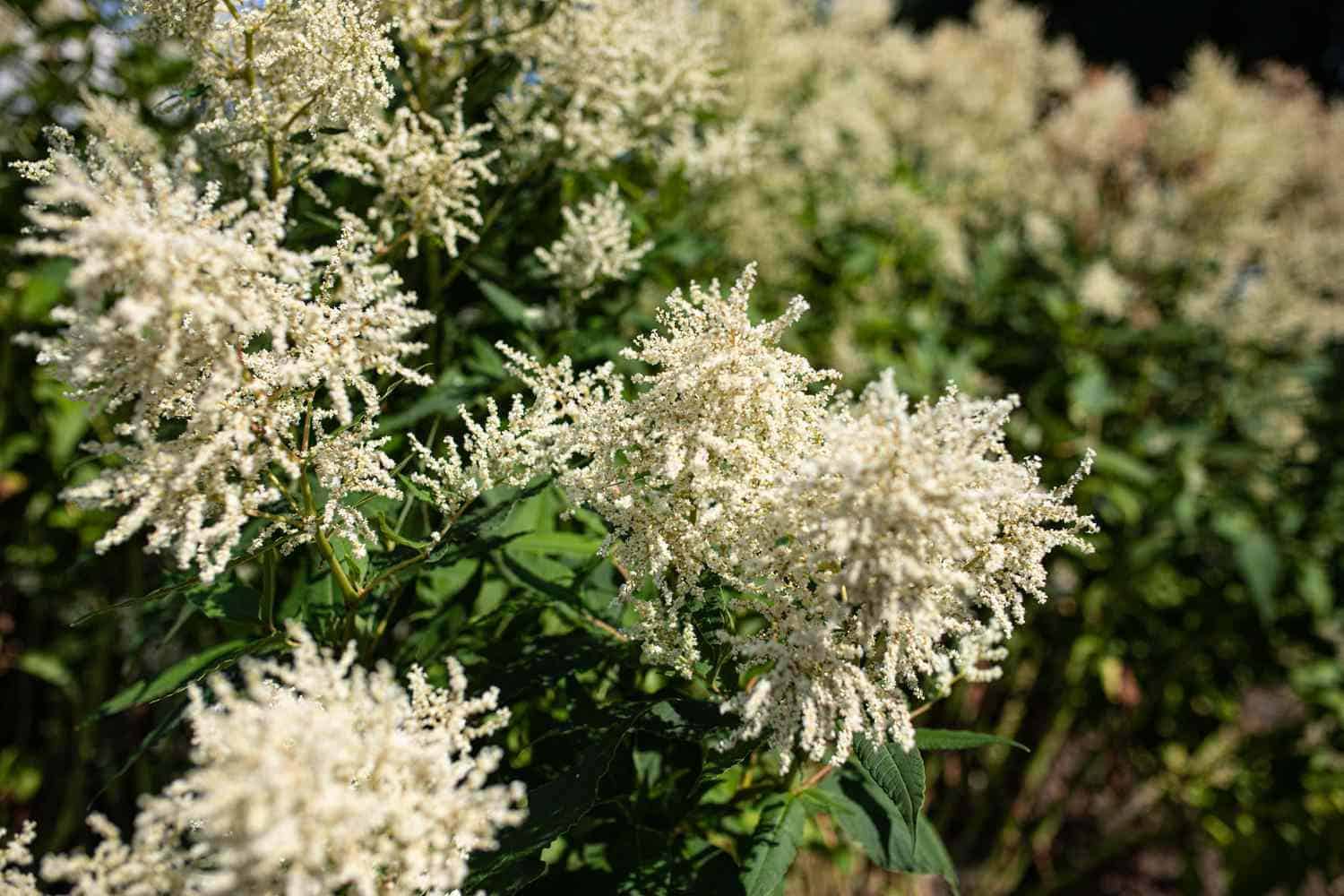
Goat’s Beard is a tall, herbaceous plant with feathery white flowers.
It thrives in wet, shady areas and is often used in woodland and shade gardens.
| Scientific Name | Aruncus dioicus |
|---|---|
| Family | Rosaceae |
| Number of Species | 4+ |
| Native Regions | Europe, North America |
| Blooming Period | Early Summer |
| Symbolism | Humility, Protection |
Uses and Benefits
- Grown in shade gardens for its ornamental foliage and flowers.
- Attracts pollinators like bees and butterflies.
- Used in traditional medicine for its astringent properties.
19. Golden Club (Orontium aquaticum)
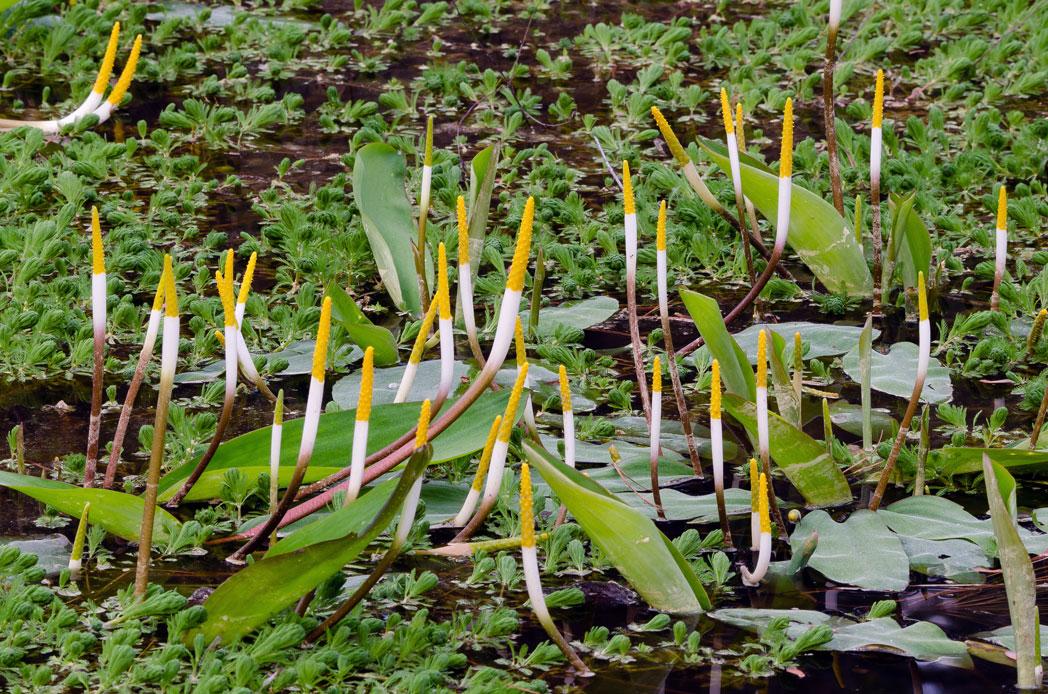
Golden Club is an aquatic plant with a bright yellow spadix that rises above its floating leaves.
It is native to North America and thrives in wetlands and ponds.
| Scientific Name | Orontium aquaticum |
|---|---|
| Family | Araceae |
| Number of Species | 1 |
| Native Regions | North America |
| Blooming Period | Spring to Summer |
| Symbolism | Purity, Simplicity |
Uses and Benefits
- Ideal for naturalizing in ponds and water gardens.
- Provides habitat for aquatic wildlife.
- Adds unique texture and color to wetland landscapes.
20. Gunnera
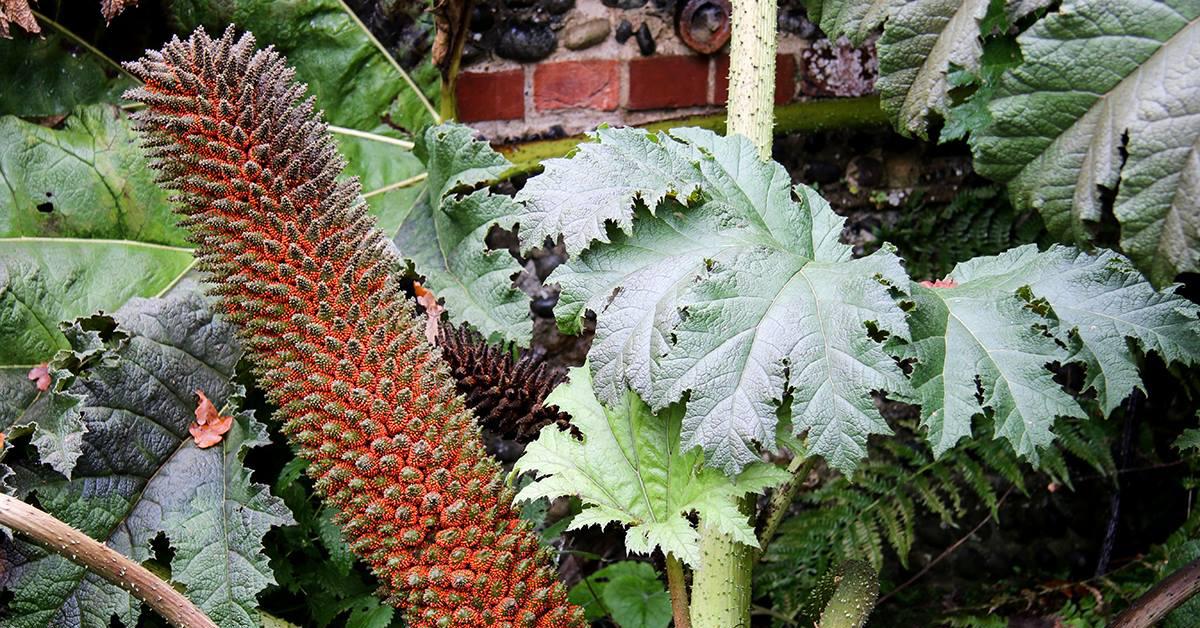
Gunnera is known for its massive, umbrella-like leaves and spiky flower clusters.
It is often used in large gardens and is a symbol of prehistoric resilience due to its ancient lineage.
| Scientific Name | Gunnera manicata |
|---|---|
| Family | Gunneraceae |
| Number of Species | 40+ |
| Native Regions | South America |
| Blooming Period | Summer |
| Symbolism | Resilience, Strength |
Uses and Benefits
- Used in large gardens for dramatic effect.
- Provides shelter for wildlife.
- Represents resilience and the endurance of ancient plant species.
21. Grape Hyacinth
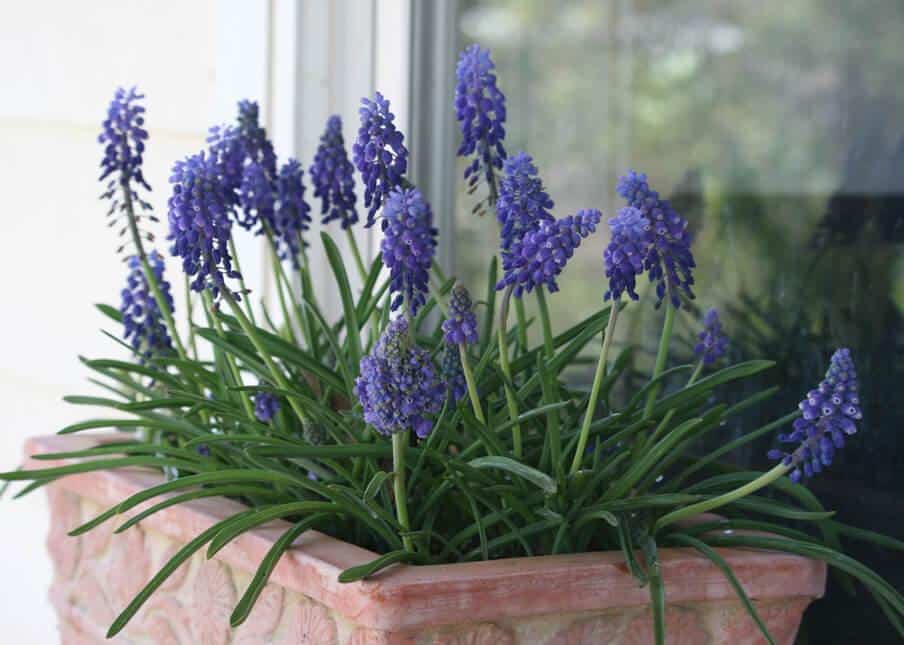
Grape Hyacinth features dense clusters of small, bell-shaped flowers in shades of blue or purple.
It is one of the earliest bloomers in spring gardens and symbolizes rebirth.
| Scientific Name | Muscari spp. |
|---|---|
| Family | Asparagaceae |
| Number of Species | 30+ |
| Native Regions | Europe, Asia |
| Blooming Period | Early Spring |
| Symbolism | Rebirth, Eternal Life |
Uses and Benefits
- Grown in gardens for early spring color.
- Naturalizes well in lawns and woodland gardens.
- Attracts early pollinators.
22. Glory Bower (Clerodendrum)
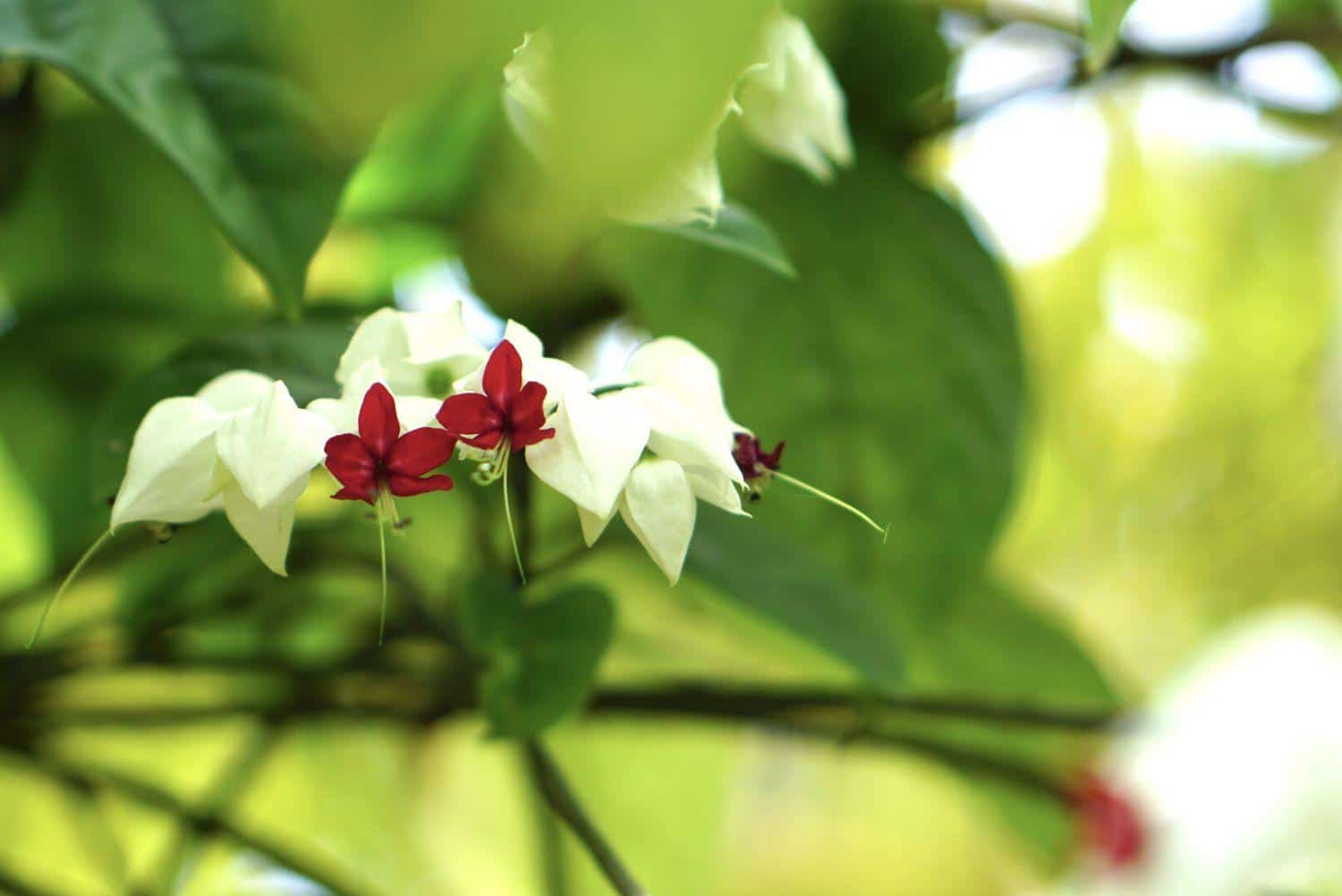
Glory Bower is a tropical plant with fragrant, colorful flowers that attract pollinators.
It is often grown in gardens and symbolizes beauty and charm.
| Scientific Name | Clerodendrum spp. |
|---|---|
| Family | Lamiaceae |
| Number of Species | 400+ |
| Native Regions | Tropical Asia, Africa |
| Blooming Period | Summer to Fall |
| Symbolism | Beauty, Charm |
Uses and Benefits
- Used as an ornamental plant in tropical and subtropical gardens.
- Attracts butterflies and hummingbirds.
- Symbolizes charm and elegance in floral arrangements.
23. Golden Trumpet (Allamanda cathartica)
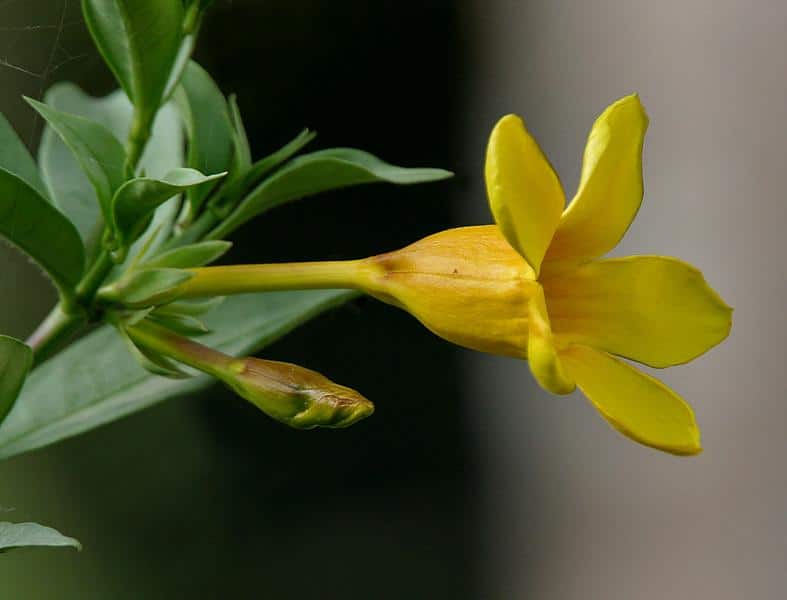
Golden Trumpet is a vine with large, bright yellow flowers that bloom abundantly in tropical climates.
It is popular in ornamental gardens and symbolizes joy and sunshine.
| Scientific Name | Allamanda cathartica |
|---|---|
| Family | Apocynaceae |
| Number of Species | 15+ |
| Native Regions | South America |
| Blooming Period | Summer to Fall |
| Symbolism | Joy, Sunshine |
Uses and Benefits
- Used as a climbing plant in gardens and landscapes.
- Attracts pollinators like bees and butterflies.
- Provides vibrant color in tropical gardens.
24. Grevillea
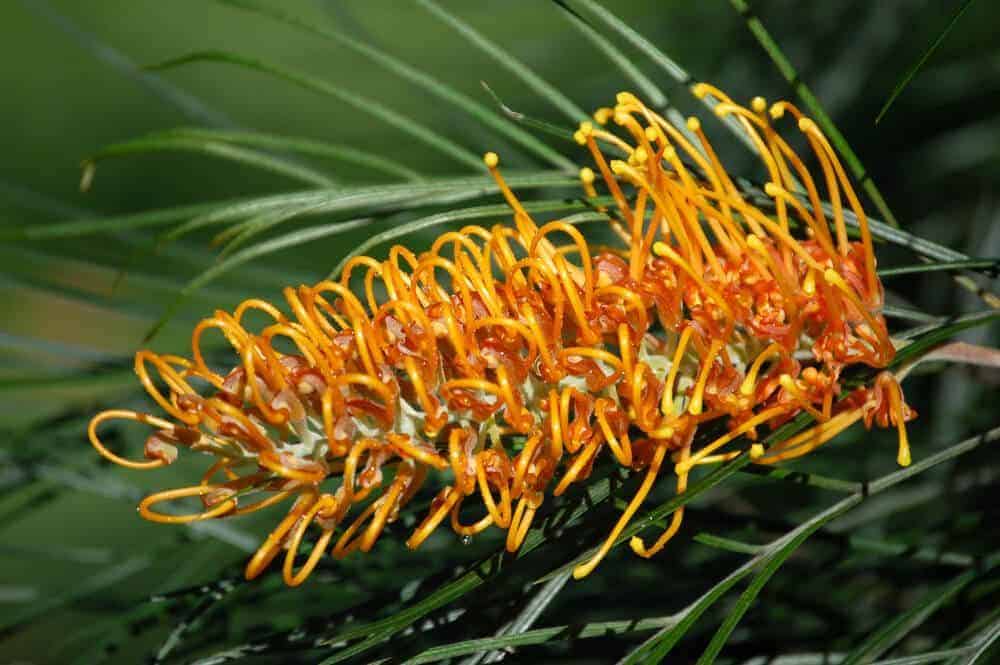
Grevillea is a shrub with unique, spider-like flowers that come in a variety of colors, including red, yellow, and pink.
It is native to Australia and is known for its hardiness and adaptability.
| Scientific Name | Grevillea spp. |
|---|---|
| Family | Proteaceae |
| Number of Species | 360+ |
| Native Regions | Australia |
| Blooming Period | Year-round |
| Symbolism | Strength, Endurance |
Uses and Benefits
- Ideal for low-maintenance gardens and landscapes.
- Attracts birds, particularly honeyeaters.
- Provides nectar and habitat for native wildlife.
25. Golden Chain Tree (Laburnum)
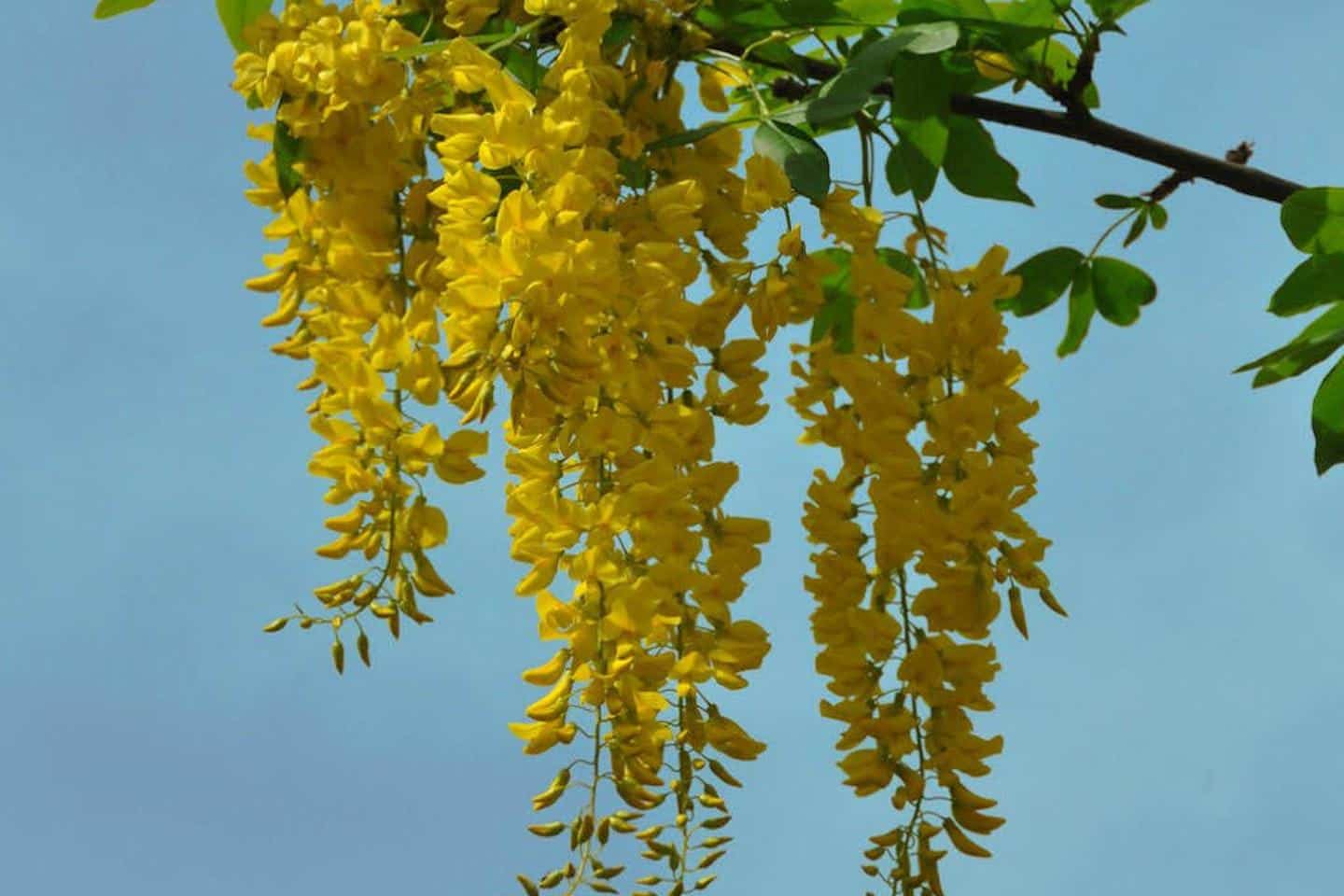
Golden Chain Tree is a small tree with long, pendulous clusters of bright yellow flowers.
It is commonly grown in Europe and symbolizes elegance and beauty.
| Scientific Name | Laburnum anagyroides |
|---|---|
| Family | Fabaceae |
| Number of Species | 2 |
| Native Regions | Europe |
| Blooming Period | Late Spring to Early Summer |
| Symbolism | Elegance, Beauty |
Uses and Benefits
- Grown as an ornamental tree in gardens and parks.
- Provides striking visual interest in spring gardens.
- Symbolizes elegance and refined beauty.
Conclusion
We’ve just explored 25 amazing flowers that start with G.
From garden favorites to rare finds, each has its own beauty and charm. I hope this list has shown you the wide variety of flora out there, even within one letter of the alphabet!
Why does this matter? Well, knowing different flowers can help you create more diverse and interesting gardens. It can also make your nature walks more fun as you spot these blooms in the wild.
Now, I’d love to hear from you! Which of these G flowers is your favorite? Or do you know any other G flowers not on this list? Share your thoughts in the comments below.
Happy Gardening!


